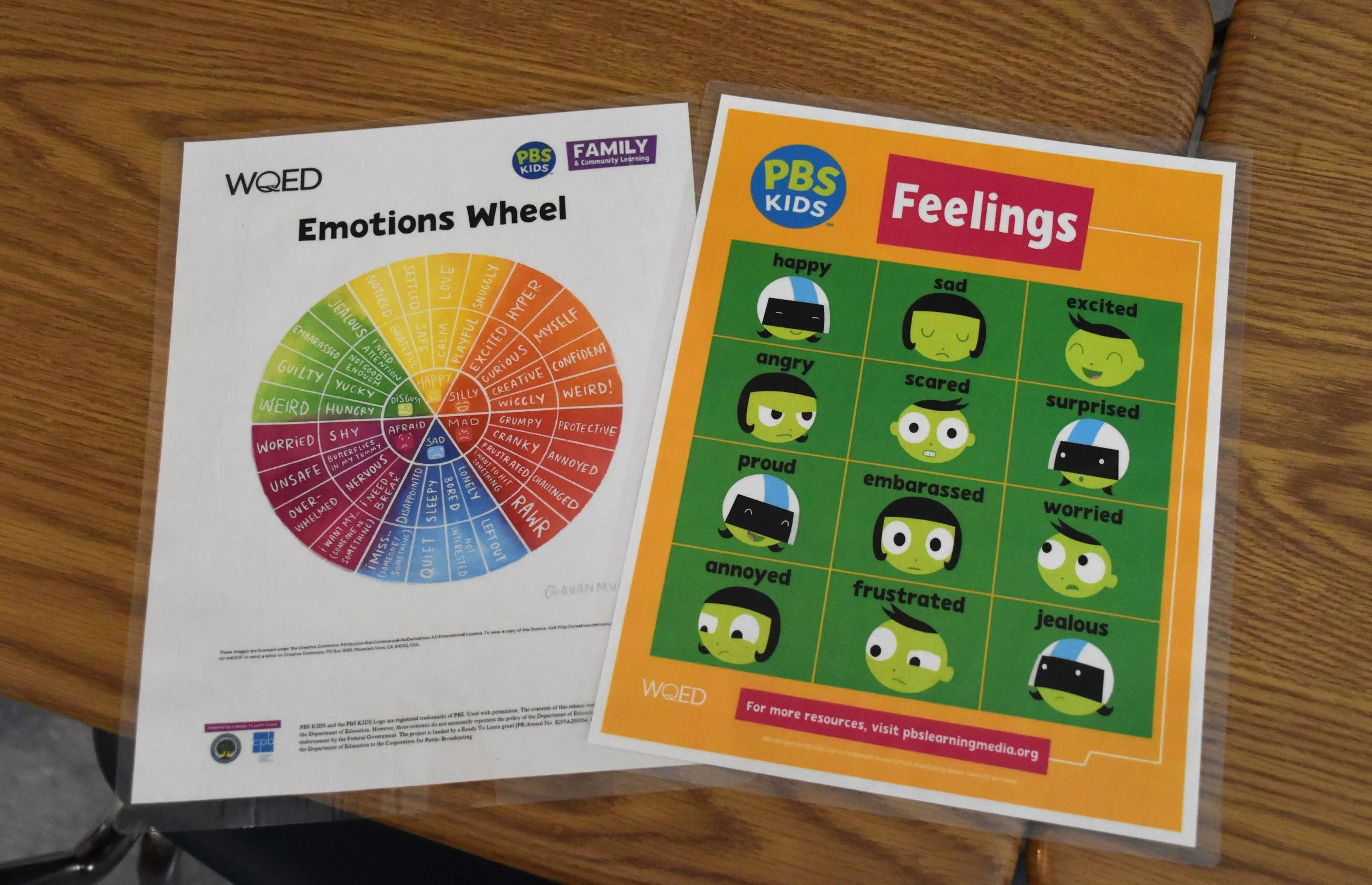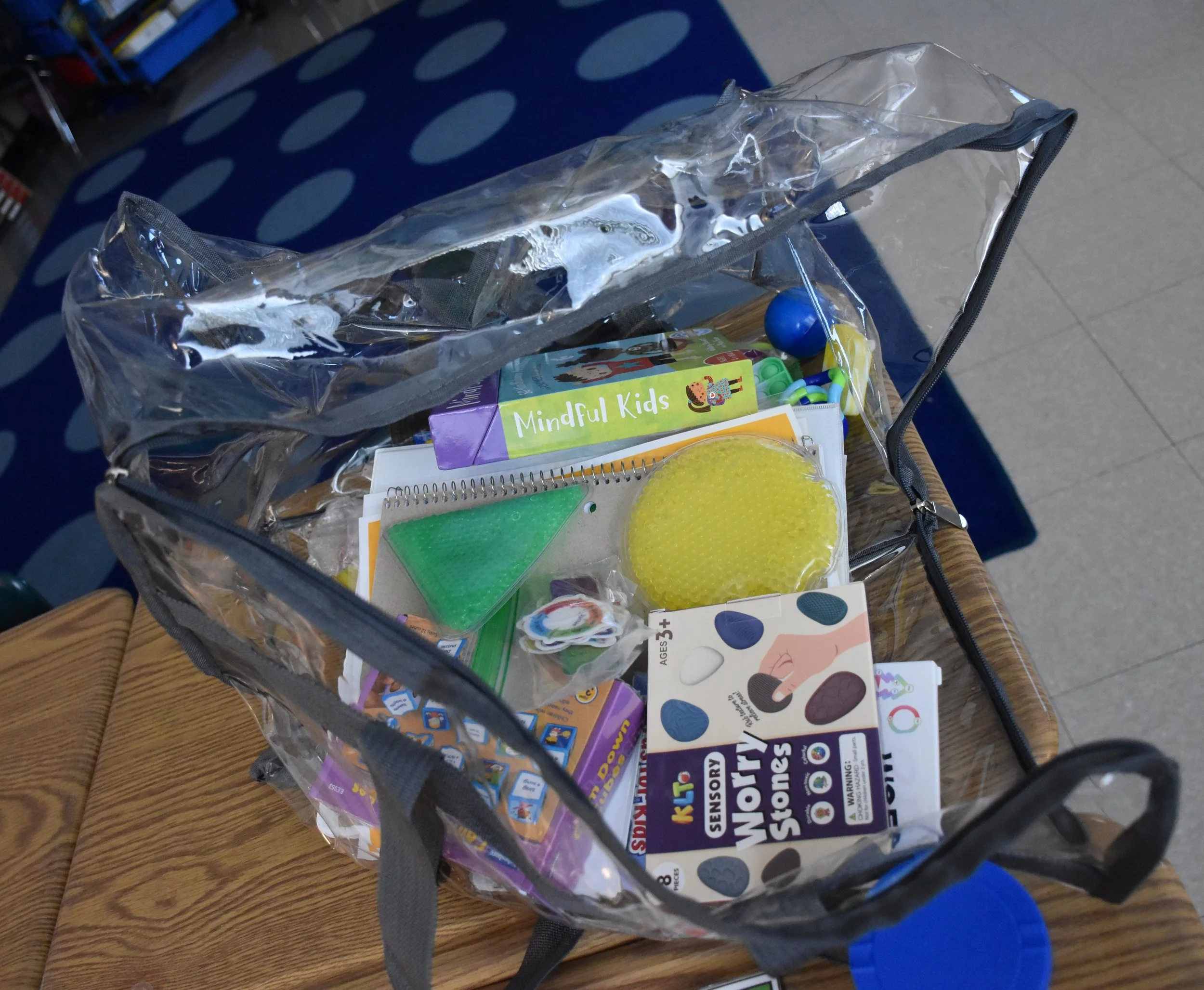The Sto-Rox Primary Center (SRPC) is transforming the way it supports student emotional regulation and well-being thanks to a partnership with WQED. This collaboration has brought comprehensive calming kits and dedicated spaces to help students navigate challenging emotions and develop essential self-regulation skills early on.
The collaboration between SRPC and WQED began during “Be My Neighbor Day” in March 2025. This free event, hosted by WQED and Fred Rogers Productions in McKees Rocks, brought families together to support local community organizations and celebrate the spirit of neighbors.
Since then, SRPC and WQED have worked together to brainstorm ways to bring the resources needed to help create a calming environment for students when experiencing difficult emotions. WQED was able to find a donor in the Sto-Rox community who chose to remain anonymous to donate $2,500 to bring the vision of calming kits for each classroom to life.
Each classroom at SRPC now has access to a comprehensive calming kit designed to provide immediate support when students need to self-regulate. The kits include sensory items like playdough, gel packs, worry stones, fidgets, and pop-its, along with mindfulness cards that offer guided exercises for emotional regulation. Educational resources are also included, featuring binders with social-emotional learning handouts. These tools are strategically placed in calming corners throughout classrooms, which have low light, comfortable seating or tents, and other sensory-friendly elements designed to create a peaceful environment for students to reset.
WQED donated an additional $500 to help convert one of the office conference rooms into a calming space. This specialized room serves as a retreat for students who need more intensive support. Similar to the calming spaces in each classroom, this room has comfortable seating, a noise machine, specialized lighting, sensory boards for tactile engagement, and posters with mindfulness and self-regulation strategies. Students who are dysregulated without aggressive behaviors can use the space with a trusted adult. Once students are ready, staff support a smooth return to the classroom.
What sets SRPC apart in promoting student emotional regulation and well-being is the way educators apply these tools inclusively and supportively. For example, in Bethany Hudac's kindergarten classroom, calming activities have become group experiences that benefit all students, not just those who are dysregulated. "If a student is dysregulated and needs help, I'll make it part of a group session," explains Ms. Hudac. "Students will sit on the carpet, and we'll do a mindfulness card together. That way, no one student is singled out, but instead all students receive regulation, mindfulness, and comfort, even if they aren't feeling like they need it." This approach not only destigmatizes the need for emotional support but also teaches students valuable regulation skills while fostering a classroom culture where peers can recognize and support each other during challenging moments.
Some grade levels, such as kindergarten, have taken the partnership's resources beyond crisis intervention by incorporating the social-emotional handouts and materials into their social studies curriculum. Students are learning to identify and name feelings, understand what different emotions look like, and develop vocabulary for discussing their inner experiences.
Dr. Lisa Mumau, Principal of SRPC, captured the spirit of this partnership at a school board meeting in July, where a Learning Manager from WQED helped present the calming kits and donation: "Thank you from the bottom of our hearts for bringing these opportunities and experiences to our kids. It's going to be amazing, and we're so excited our staff is on board. We couldn't do this work without our teachers and without partners like WQED."
This collaboration represents more than just new resources—it's a commitment to supporting the whole child and creating an environment where every student can thrive emotionally and academically.














